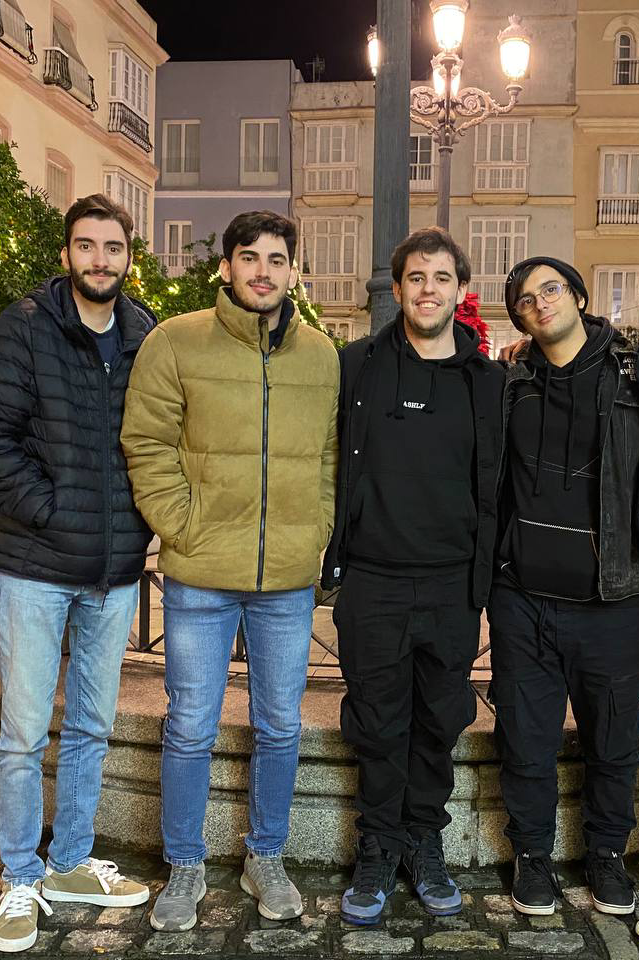Un equipo de estudiantes de la ESI se proclama ganador del evento de ciberseguridad Talent4Cyber_24 29 October 2024
El pasado 18 de octubre un equipo formado por cuatro estudiantes de la Escuela Superior de Ingeniería de la Universidad de Cádiz, Pedro José Navas Pérez, Carlos Flethes Montesinos, Álvaro Orellana Serrano y Alejandro Arias Casquero, se alzó con la victoria en Talent4Cyber_24, el hackaton del Mando Conjunto del Ciberespacio, organizado junto con la Universidad de Granada y el TRUST Lab de la Universidad Politécnica de Cartagena.
Estos cuatro estudiantes demostraron sus habilidades en ciberseguridad durante dos intensos días de competición, superando a equipos de las Universidades de Castilla-La Mancha, Murcia, Zaragoza, Granada y Cartagena, así como del propio Mando Conjunto del Ciberespacio.
La competición arrancó el 17 de octubre con un emocionante Capture The Flag, donde se enfrentaron a múltiples desafíos de ciberseguridad, clasificándose solo los seis mejores de cada grupo para la siguiente fase.
El segundo día elevó el nivel de exigencia con simulaciones de incidentes de ciberseguridad realistas, centrados en la protección de sistemas críticos, poniendo a prueba la capacidad de los participantes para reaccionar ante ciberataques complejos y tomar decisiones estratégicas bajo presión.
Esta victoria no solo destaca el talento de los estudiantes de la UCA, sino que también refuerza la posición de la universidad y la escuela en el ámbito de la ciberseguridad a nivel nacional.
Tras ganar esta competición, el equipo de la UCA recibirá su merecido premio el próximo día 27 de noviembre durante la celebración de VI Jornadas de Ciberdefensa ESPDEF-CERT en Madrid, que les ofrecerá la oportunidad única de participar en el prestigioso evento Locked Shields 2025, organizado por el NATO Cooperative Cyber Defence Centre of Excellence (CCDCOE).
¡Enhorabuena campeones!


